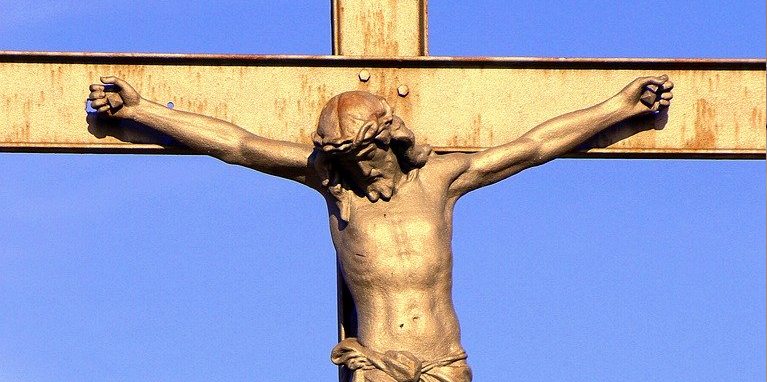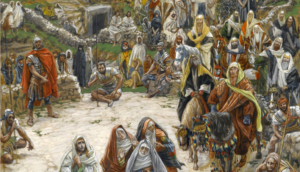
GOOD FRIDAY

Good Friday is steeped in the theology of the fourth Gospel – the Gospel of John. If we don’t get it right, then what happens liturgically on this day can be a bit confusing. In John’s Gospel, even while Jesus is nailed to the Cross, we have an image of Jesus who is in control from beginning to end. From the Cross he directs the beloved disciple to take Mary, his mother. When they come to arrest Jesus, and he says, “I am he,” the text behind these words is the same as in John 6 where Jesus says “I am the bread of life….” This expression is used six other times in John’s Gospel and it means that Jesus is asserting his divinity – for this is related to the name of God given to Moses – which some translate as I am who am. It is in John’s Gospel that there is the debate about the sign affixed to the Cross proclaiming Jesus as King of the Jews. This account more than any other makes it clear that Jesus is king and reigns from the Cross. As we observe this day at home, it is good to remember that even in suffering and trying times, Jesus reigns from the Cross.
Knowing that this day is the supreme expression of Jesus as ruler of the universe, it makes perfect sense that there should be the long list of intercessions on Good Friday. For this year, the Pope has asked that we add an extra one: “Let us pray also for all those who suffer the consequences of the current pandemic, that God the Father may grant health to the sick, strength to those who care for them, comfort to families and salvation to all the victims who have died.” Reflect on all these intercessions, and take your time with them and see them as formal petitions that would have been presented before a medieval king. That is why they seem long to us. The intercession for the Jewish people is particularly important, since it has a less than pleasant history. In its current form, it asks God to help them to remain faithful to the unbreakable covenant that God has with them. This is essential to our faith for two reasons.
1. If God would break his covenant with the Jewish people, even if they were unfaithful, we, should not expect God to be faithful to our covenant with God in Christ if we should be unfaithful to the promises we made at our baptism.
2. This is an important counterweight to the use of the word “Jews” in the Passion we just read. The term in the Passion reading does not refer to the Jewish people, but to a group within the people of Israel, and even if it does refer to a group of people, it is beyond wrong to see the Jewish people as responsible for the death of Jesus. Especially in this Gospel, Jesus is in charge of his own destiny and he insists that it is his place to die. Since we claim to be saved by the Cross of Christ, it is we who “cause” the death of Jesus.
So on this very unusual Good Friday, be aware that we have a great opportunity to be in the presence of the King of the Universe. Make your petitions known, and pray in awareness of the covenant that saves us all.
–Glenn Byer has been making music for the Mass for 40 years, and has been writing about and offering courses and workshops on liturgy for more than 30 years. He holds a Master’s in liturgy from the University of Notre Dame, and a doctorate in liturgy from the Pontifical Institute for Liturgy at the Atheneaum of Sant’Anselmo in Rome. Glenn has written numerous books, most recent of which are: 26 Ordinary Ways to Live the Liturgy, Unlocking the Feasts and Seasons of the Liturgical Year and Living the Liturgy of the Word.


